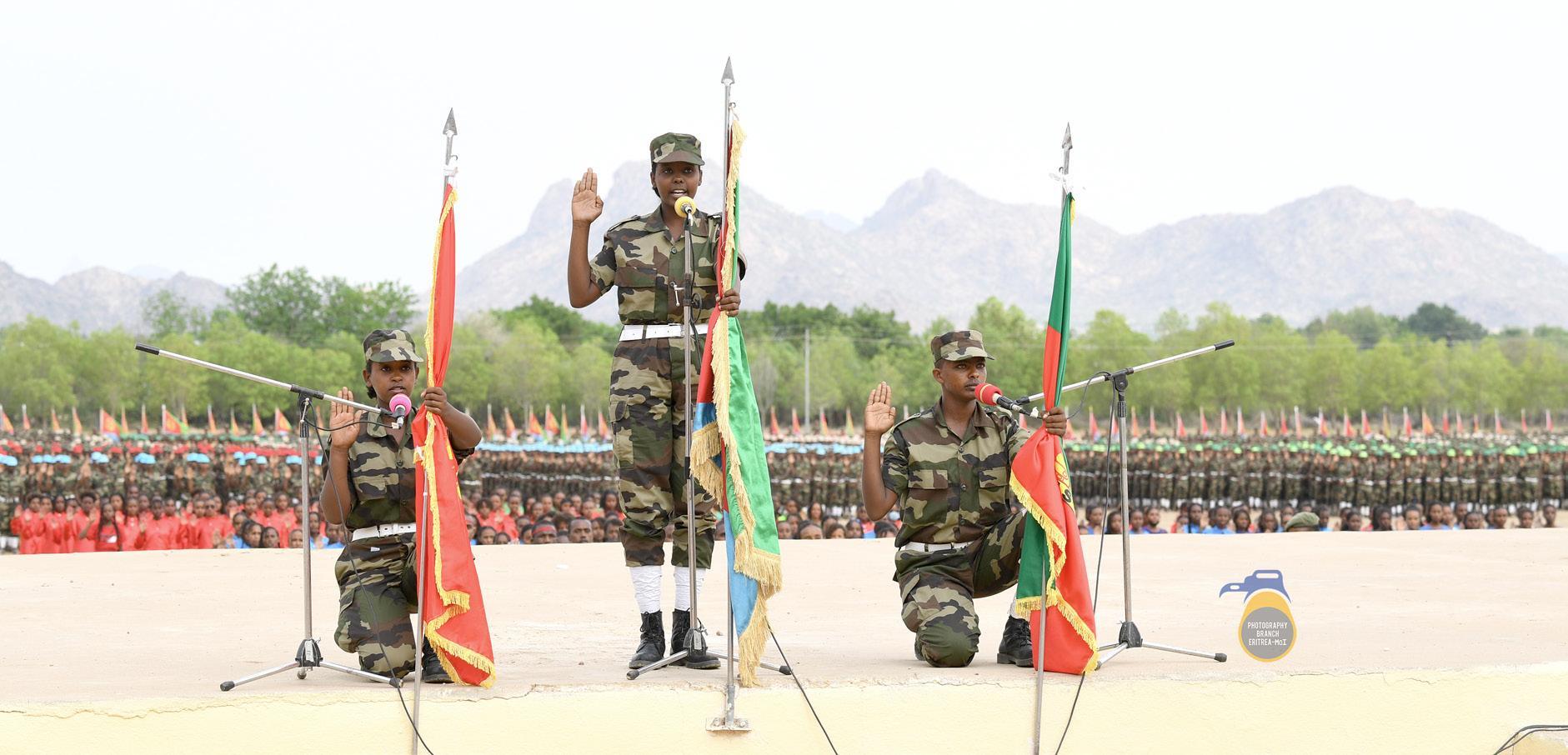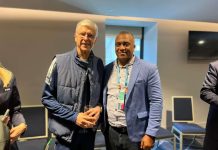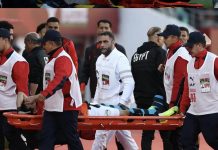Africa-Press – Eritrea. Last weekend, a momentous occasion unfolded at the Sawa Military Training Center. Not only did the center hold its 36th graduation ceremony, but this year also marked the 30th anniversary of Sawa’s establishment. For young Eritrean graduates, this wonderful day marked the successful conclusion of a transformational year at the center. The following is a short interview with some of the 36th-round graduates.
Warmest congratulations on graduating from high school and completing national service training! It’s a tremendous accomplishment. Would you like to tell me a bit about yourself?
My name is Edil Esau. I attended Barka High School in Asmara from 9th to 11th grade. I completed my national service training in Sawa as part of the 36th round, 1st division.
I’m Fal Natnael, from Barentu, in the Gash-Barka region. I came to Sawa to complete my high school education and military training.
My name is Kodna Bideho. I am from Keren, Anseba region. I completed my academic and military training at Sawa and served in the 1st division.
My name is Nejah Sraj, and I come from Sanafe, the southern region. I also completed my military training in Sawa as part of the 36th round, 2nd division.
Can you describe your experience in Sawa?
Fal: Sawa has been an incredible experience. There’s ample time to focus on academics without the burden of additional duties. This allows for deep concentration and avoids distractions. One of the best things is meeting so many intelligent people from across the country. It fosters knowledge sharing and broadens understanding. Sawa’s communal life fosters a robust academic environment. Dedicated study times exist, and afternoons offer additional tutorials for improvement. Studying together builds a sense of friendly competition, motivating everyone to strive for excellence. The mentors here are incredibly supportive, encouraging us to prioritize education like parents. Everything in Sawa is structured and well-planned. While the military training is challenging, it builds discipline and physical resilience.
Kodna: Most of the time was spent on education, which was fantastic. The military training months followed, and everything went well. Aside from regular school hours, there is a specific period for studying and tutoring. The Warsay Yikealo High School also houses an extensive library. Plus, we had committed teachers who worked hard to help us comprehend everything they could. During the academic months, the dorms are silent and dedicated to studying. My colleagues and I were studying in the cafeteria. After finishing our education, we embarked on military training. It was theoretical and practical. The military training period was well-organized and efficient.
How did your expectation and the reality in Sawa compare?
Edil: Before coming to Sawa, you’re bombarded with information from various sources, such as school seminars, friends, and strangers. These accounts paint a spectrum of experiences, some reflecting reality closely while others veer off into negativity, often seeming exaggerated. It’s true; the Sawa you imagined based on these stories and the Sawa you encounter firsthand can feel like entirely different places. But now, having experienced it for myself, you can see Sawa for what it truly is: a transformative force that builds people from the ground up. It equips you with life lessons that stay with you forever. Just like solid foundations are crucial for a building, a nation’s strength relies on its people. Sawa is the cornerstone of this development, shaping individuals who will shape the country’s future.
Sawa gave me a unique opportunity to experience the program’s positive impact firsthand. This one-year training equipped me with valuable skills I lacked and opened doors to a deeper understanding of Eritrean culture. Witnessing people from diverse ethnic groups across the country come together under the Sawa umbrella was genuinely inspiring. Beyond cultural immersion, Sawa offered a platform to learn additional Eritrean languages. Sawa fostered a strong sense of community, teaching me valuable lessons in cooperation, communal living, and mutual support. It equipped me with the skills to navigate diverse personalities and forge a unified identity from these varied backgrounds. One of the most valuable skills I gained at Sawa is time management. Every second truly holds significance here. The structured environment, with everything planned and scheduled, has been instrumental in developing my ability to manage my time effectively. This experience at Sawa has also served as a fantastic training ground for self-reliance and confidence.
Fal: Sawa is a crucible that forges strength, resilience, and a strong work ethic. It fosters not only responsibility but also invaluable social skills. Beyond personal growth, Sawa equips graduates with leadership and guidance capabilities. Completing this program is a transformative experience, shaping individuals forever. Sawa hones its students into exceptional individuals. Sawa’s program transcends basic training. It cultivates well-rounded individuals by nurturing both physical strength and intellectual prowess. The program equips graduates with the tools for future success, fostering critical thinking, a robust work ethic, and the discipline to conquer obstacles. This unique environment brings together people from all six Eritrean regions, representing the country’s nine ethnicities.
Here, you share traditions, languages, and ways of life, fostering a deep understanding and appreciation for your nation’s rich tapestry. Sawa has personally transformed me. This year-long journey has exposed me to a wealth of traditions and skills from my fellow trainees. This newfound knowledge will undoubtedly be a valuable asset throughout my life. No longer will I feel like a stranger in any corner of Eritrea? Sawa has instilled in me a familiarity with each region’s culture and traditions, including greetings in all Eritrean languages. Perhaps most importantly, I’ve gained lifelong friendships with people from across the country, a unique opportunity.
Kodna: Certainly, life before Sawa was different. Sawa is a cauldron that shapes us into experienced individuals. I’ve developed the ability to navigate social interactions more effectively. Sawa has also instilled in me the importance of time management and discipline. Every minute here is meticulously planned, from meals and studies to leisure and work. There’s no room for wasted time. Before arriving at Sawa, my experience was limited to the traditions and customs of my small community. However, Sawa has opened my eyes to the rich diversity of Eritrean culture, and I’m amazed by the tapestry of traditions practiced across the country. While mass media can introduce you to different cultures and ethnicities, there’s no substitute for experiencing them firsthand. Here in Sawa, I’ve been immersed in the vibrant diversity of Eritrean traditions, a richness that goes far beyond what any screen can convey.
Nejah: There’s ample opportunity to focus on your studies as long as you’re willing to manage your time well. Our academic months at Sawa were truly exceptional. The dedicated support of our mentors, who consistently checked in on us throughout the school term, was invaluable. We could entirely focus on mastering the material with minimal distractions during study periods. This environment fostered a healthy spirit of competition, motivating everyone to excel. As a result, our division achieved first place in academics. Being here has shown me how untrue those initial rumors were. Coming to Sawa has been a positive experience overall.
For More News And Analysis About Eritrea Follow Africa-Press







